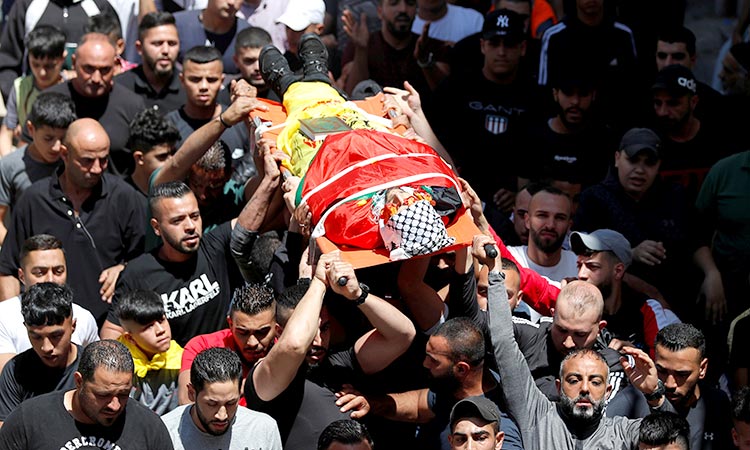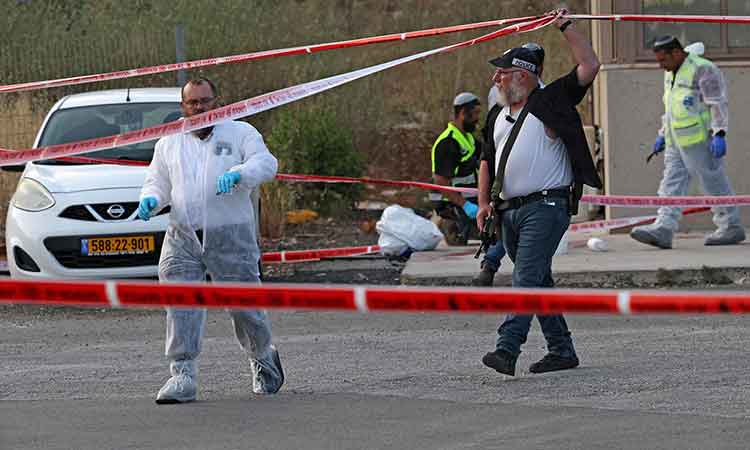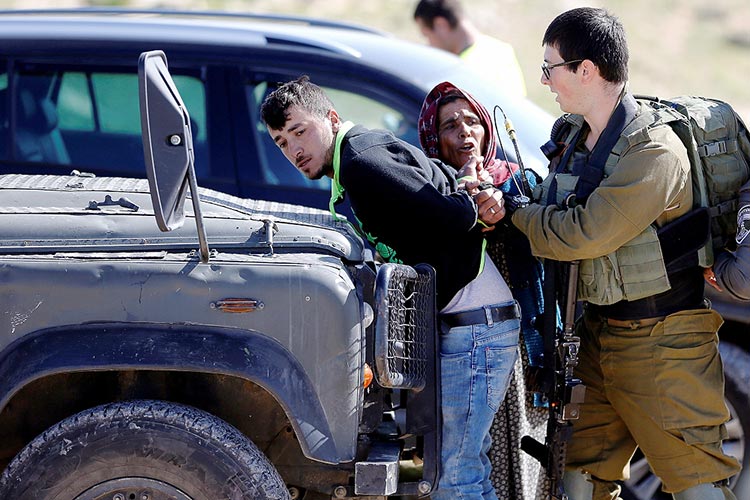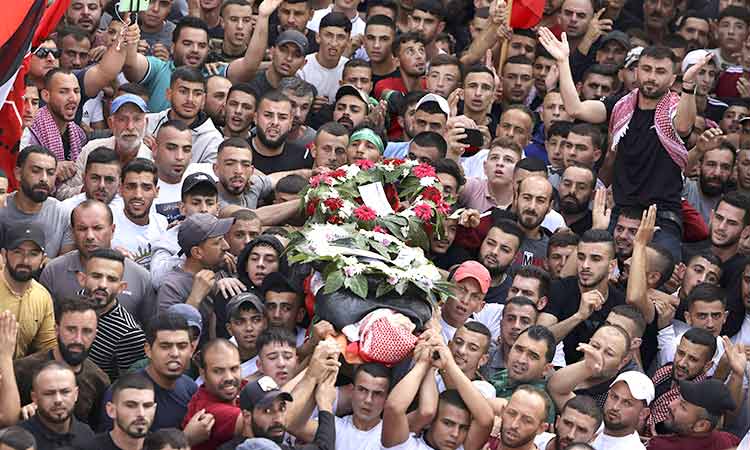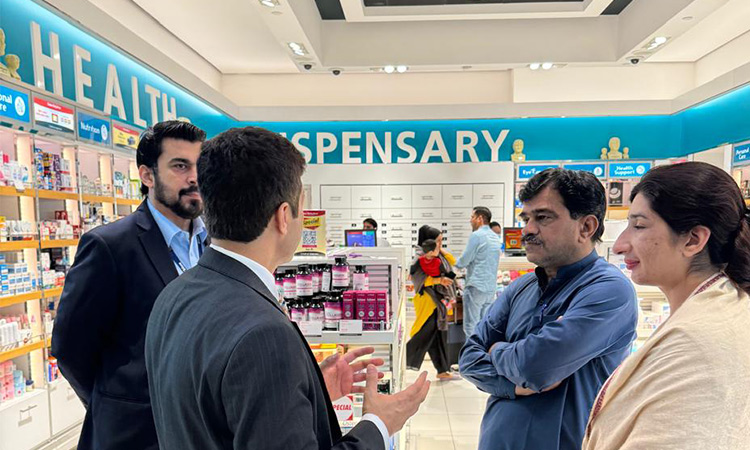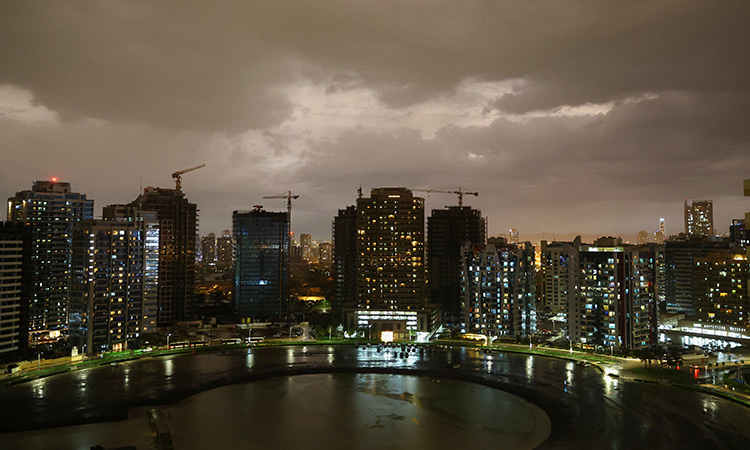Palestinian killed 3 others hurt in clash with Israelis
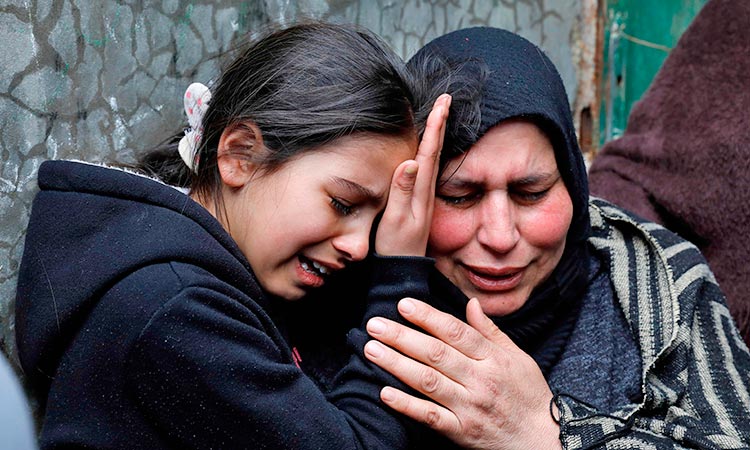
Relatives of 23-year-old Mohammed Adwan mourn during his funeral in Qalandia refugee camp on Tuesday. Agence France-Presse
The ministry said Mohammed Adwan, 23, was killed and three others were wounded.
Two residents said soldiers arrived in the Qalandiya area early on Tuesday to carry out arrests and young men threw stones at them.
Qufr Aqab is located on the other side of the Israeli separation barrier which divides Jerusalem from the occupied West Bank, but is still considered part of the city.
Israeli forces often enter Palestinian towns in the West Bank to carry out arrests in raids that frequently lead to clashes.
Meanwhile, in a separate development the Palestinian ambassador to Brazil said on Monday he may be recalled home after right-wing Brazilian President Jair Bolsonaro’s new government said it will open a trade mission to Israel in occupied Jerusalem.
Brazil’s announcement on Sunday came during a visit by Bolsonaro to Israel. It stopped short of following the United States with a full embassy move to the contested city of occupied Jerusalem, as Bolsonaro had suggested in January. Like most countries, Brazil has an embassy in Tel Aviv.
Palestinian Ambassador in Brasilia Ibrahim Alzeban told Reuters that he may be recalled, although a response was still under consideration.
“From what I was told, it will depend on how (Bolsonaro’s) visit evolves,” Alzeban said. “We wish that the subject of Jerusalem had not been touched upon.”
The Palestinian Foreign Ministry said on Sunday the opening of the Jerusalem trade office was as a “a flagrant violation of international legitimacy (and) direct aggression against our people and their rights.”
Meanwhile, as their rickety motorboats puttered out into deep Mediterranean waters for the first time in almost two decades, the Palestinian fishermen prayed for deep water mackerel and tuna to supplement Gaza’s usual shallows fare of sardines, shrimp and crab.
This week, as part of Egyptian-mediated efforts to ease the plight of 2 million residents of the blockaded Gaza Strip, Israel has extended the area where it permits Palestinians to fish.
“Such a distance has been off-limits. And hopefully there are lots of fish to bring back,” said 69-year-old fisherman Ahmed al-Amoudi.
Israel keeps a naval cordon on Gaza, part of a blockade it and neighbouring Egypt say is necessary to prevent arms smuggling by the Hamas Islamists that rule the coastal territory.
Israel has long limited Palestinian fishing waters, and has varied the size of the zone. It was tightened to just 6-9 miles (9-15 km) from the coast in recent years. But on Monday, Israel broadened the limit to 12-15 miles (19-24 km) out, its widest since 2000, before a Palestinian revolt erupted.
“This step is part of the civilian policy aimed at preventing a humanitarian deterioration in the Gaza Strip and reflects the policy of distinguishing between terror and the uninvolved populace,” an Israeli official said.
Palestinians saw the move as an Israeli concession to a year of protests at the border, combined with several surges of cross-border fighting which have prompted mediation by Egypt, the United Nations and Qatar on ways to help Gaza’s economy.
“Thanks to God and then to the ‘March of Return’, which opened up the sea for us,” Al Amoudi said, referring to the weekly demonstrations at the frontier, which demand a lifting of the blockade and the right for Palestinians to return to homes their families fled or were forced from when Israel was founded.
April to June are peak Gaza fishing season. The sector accounts for less than 5 per cent of the enclave’s GDP and supports some 50,000 people, a fraction of the 2 million population.
But the fishing has value beyond the numbers, as one of the few viable industries in Gaza, where more than half the population is unemployed and nearly 80 per cent receive some form of aid, according to the World Bank.
With Gaza’s land borders tightly controlled by neighbouring Israel and Egypt, the sea’s horizon provides many Palestinians with a glimpse of hoped-for freedoms of movement in the future.
The fishermen still have it hard, with fuel and spare parts for their boats scarce. They say that Israel has also barred the importation to Gaza of wire cables that would allow them to line nets for plumbing the depths.
Agencies
